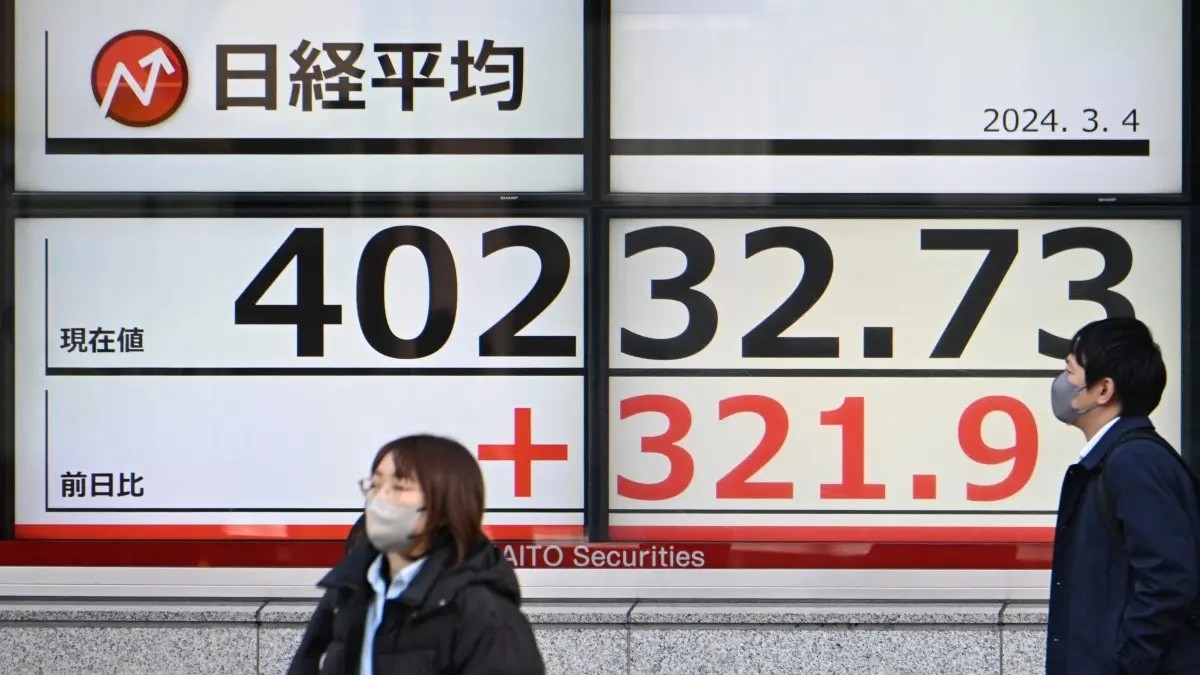Asian stocks fell on Monday as investors braced for a busy week of data, led by the U.S. jobs report, which could decide whether an expected interest rate cut this month will be moderate or large.
A holiday in the US and Canada has led to a cash shortage, while victories by far-right parties in German state elections have added to political uncertainty.
The dollar held onto most of Friday's gains today, after upbeat spending figures prompted markets to discount the chance of a half-point rate cut by the US Federal Reserve, Reuters reported.
Futures are pricing in a 100% chance of a 25 basis point cut on Sept. 18, implying a 33% chance of a 50 basis point cut. They also have 100 basis points of cuts expected by December, and 120 basis points by 2025.
Markets also expect the Bank of Canada to cut interest rates again next Wednesday, with markets giving a 22% chance of a 50 basis point cut.
Friday's wage report will be crucial for the Fed as analysts expect a 165,000 jobs gain and the unemployment rate to fall to 4.2%.
“The risks going into this crucial release look very asymmetrical with a strong report unlikely to derail a September cut,” said Christian Keller, economist at Barclays.
Federal Reserve Governor Christopher Waller and New York Fed President John Williams are scheduled to speak after the jobs data, which will give the market an almost immediate reaction.
These risks kept investors cautious, with S&P 500 futures down 0.1% and Nasdaq futures down 0.2%.
Euro Stoxx 50 futures were flat, while FTSE futures rose 0.3%.
Asian markets struggled to follow Friday's rally on Wall Street, with Japan's Nikkei index erasing early gains to remain almost unchanged, after jumping 8.7% last week.
MSCI's broadest index of Asia-Pacific shares outside Japan fell 0.4%, while South Korean stocks rose 0.3%.
China's blue-chip stocks lost 1.2%, led by losses in property, after a survey showed house price growth had slowed.
Shares of New World Development, a major Hong Kong property developer, fell 14% after it reported a net loss.
Caixin's manufacturing survey rose to 50.4 in August, beating expectations of 50.0. Surveys of factories in Japan and South Korea showed improving activity.
Cash Treasuries were not traded during U.S. holidays, while Treasury futures did not move much.
The 10-year yield hit 3.914% after rising following Friday's inflation and spending data.
This rise supported the US dollar at 146.08 yen, after it rose by 1.2% last week, and now faces resistance on the chart at around 148.54.
The euro was steady at $1.1045, after losing 1.3% last week, with political uncertainty in Germany not helping.







































